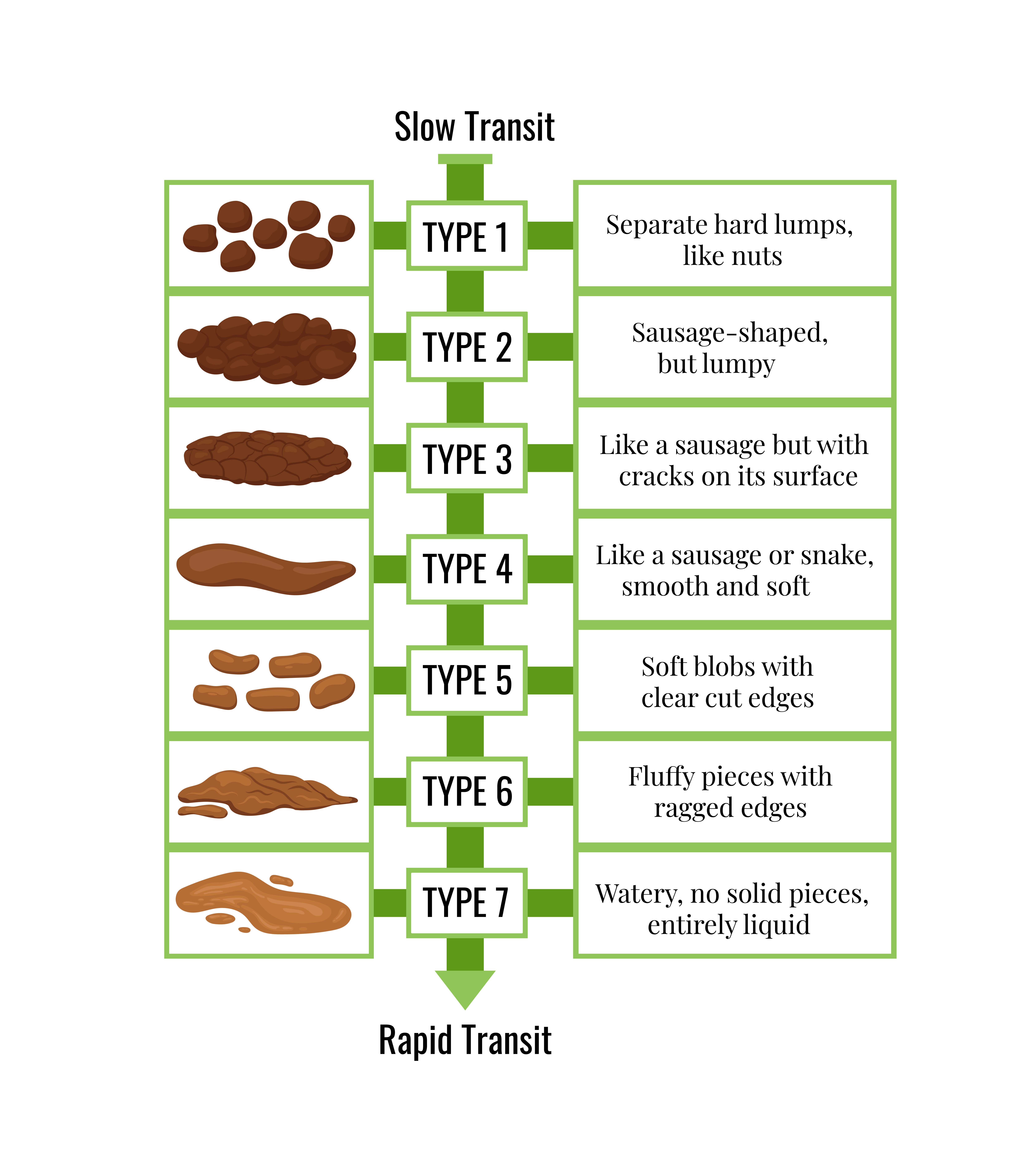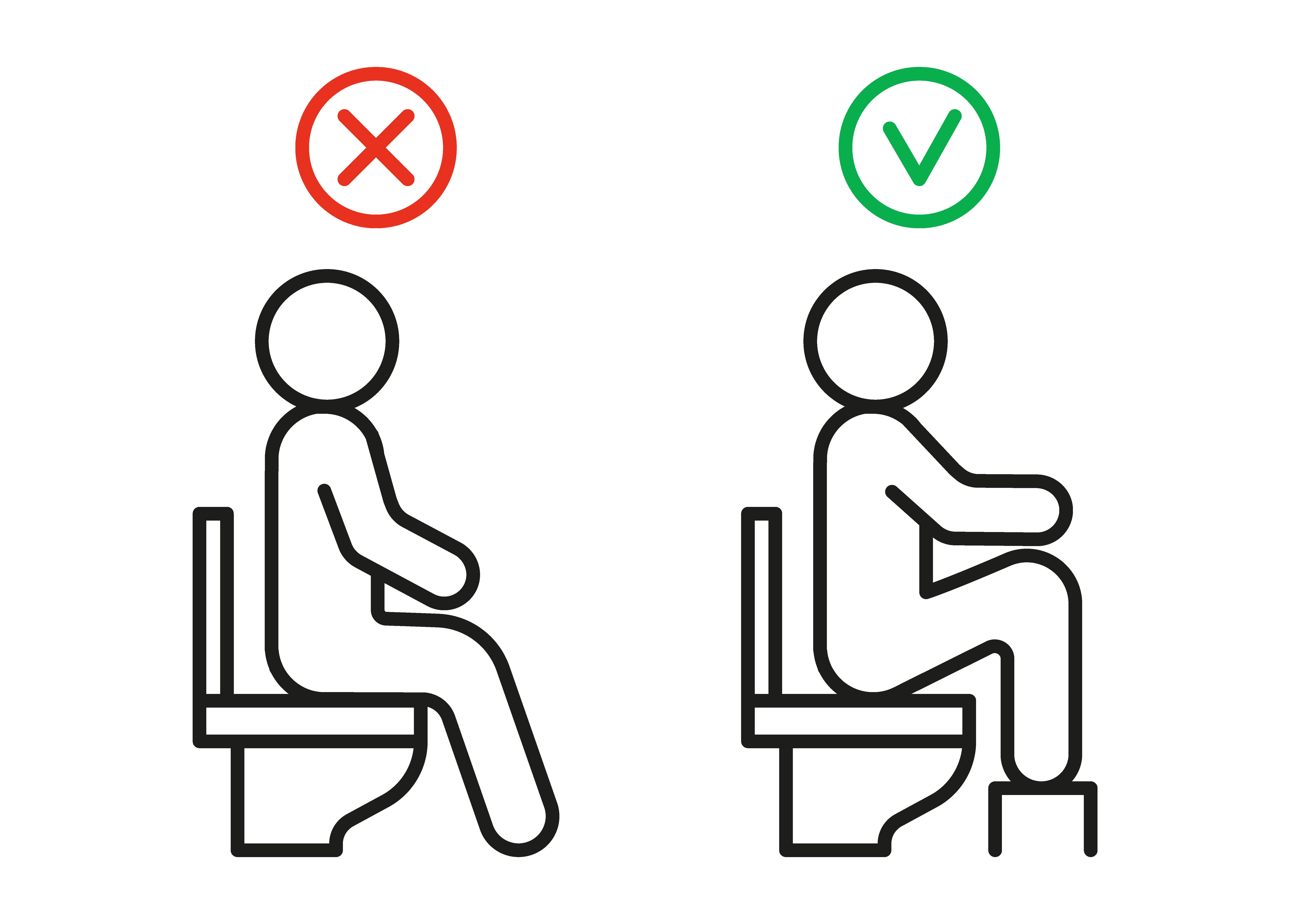This may be an uncomfortable topic, but it’s important and part of our daily lives. Is it normal? Is there something wrong? How can we tell?
What is poop?
To understand poop, let’s define what it is and get this conversation flowing in the right direction. Poop is the result of what’s left over after your body has absorbed vital nutrients from the food you ate and the fluids you drank. It’s the remains of everything that the small intestine could not digest or absorb, which is why it is also called waste. Research has shown that 75% of poop is made of water and a smelly combination of dead and living bacteria, fiber and other cells.
What’s normal?
 Shape, texture and color can tell you a lot about your poop. Good-looking poop is sausage-shaped, smooth and soft.
Shape, texture and color can tell you a lot about your poop. Good-looking poop is sausage-shaped, smooth and soft.
This shape and texture are proving everything you’re doing right, from good core strength and a happy gastrointestinal system to good eating habits filled with fiber and nutrients. It’s normal for poop to be different colors. For adults and children, poop is most often light or dark brown.
 Deep impact
Deep impact
Bowel movements should be relatively soft and easy to pass. But when constipation strikes, it can become painful and uncomfortable. Poop that is separated into hard lumps like nuts, sausage-shaped but lumpy or have cracks on the surface could signal a slower transit time. In other words, constipation is rearing its ugly head.
This is why eating with a healthy nutrition plan and maintaining your health and wellness are so important. The care you provide for your body will help you keep things moving along. If you haven’t been able to successfully pass a bowel movement like normal, call your health care provider.
Too much, or not enough?
Most people have a regular schedule for their “daily constitutional.” If that schedule suddenly changes, it could signal that something isn’t right. Some symptoms, like constipation, may not always point to a serious condition. However, unexpected and sudden urges to have a bowel movement can signal more serious issues such as a mass in the rectum or inflammatory bowel disease (IBS) and should be discussed with your provider.
How do I know when something’s wrong?
If you suspect something is wrong, talk with your health care provider. Changes in poop color, consistency and frequency can signal changes in your digestive system.
Schedule an appointment with one of our specialists in Delaware or Maryland.
 Shape, size and consistency (degree of firmness) are the telltale signs of healthy poop. Unhealthy poop can result from poor eating habits, stress and anxiety, lack of hydration, food intolerances and inflammation and the need for more physical activity.
Shape, size and consistency (degree of firmness) are the telltale signs of healthy poop. Unhealthy poop can result from poor eating habits, stress and anxiety, lack of hydration, food intolerances and inflammation and the need for more physical activity.
Poop is most often on the brown color spectrum with a large variety of shades. But when it turns deep red, maroon, black or even clay or white and has an unusually noticeable odor or appears to have a tarry consistency, talk to your health care provider – immediately. Reasons can include anything from hemorrhoids or a scratch in the rectal area to a more serious condition including bile duct stones, liver-related issues, bacteria or cancer, among others. Early detection and treatment for a patient could be lifesaving.
Diarrhea that occurs after you eat but only during the day is less worrisome than the kind that happens no matter what you do, including in the middle of the night. But if you experience sudden weight loss, dehydration or bleeding, these are signs that you need to see a health care provider.
What can I do to help my poop stay healthy?
It doesn’t have to be a chore. Take good care of your health and wellness, and you’ll have good poop, too.
Not sure where to start with improving your nutrition plan? Schedule an appointment with one of our dietitians in Delaware or Maryland.
- Make good food choices including fiber, whole grains, beans, fruits and plenty of water. Learn more about a balanced, nutritious eating plan here.
- Exercise daily. Even 20 to 30 minutes of walking daily can help keep things moving along regularly.
- When it’s time to “go,” don’t put it off. Once the urge strikes, make it a point to go to the nearest bathroom. Delaying this can lead to constipation, impaction, inflammation and more severe complications. Plus it’s incredibly uncomfortable and can lead to irritability and mood changes.
- Practice proper pooping. Squatting or sitting with your knees raised and legs slightly spread, could be the most natural and effective way to empty your bowels (see graphic). Squatting may help your rectal muscles into a more neutral position, reducing straining during bowel movements.

- Chew your food thoroughly to aid with digestion. Don’t make your stomach go into overtime trying to digest all those calories in large chunks. The more you chew, the better you poo.
- Schedule an appointment with your health care provider for an annual colorectal cancer screening (for those ages 45 and up).
Contact us to schedule an appointment
Schedule an appointment with one of our gastroenterologists in Delaware or Maryland who can diagnose and help manage conditions that affect your digestive health. We provide colonoscopies, health education and condition management to help your body stay healthy and keep your poop moving along regularly.

 Colorectal cancer includes cancers of the large intestine (colon), the lower part of the digestive system and the rectum. Colorectal cancer does not always have symptoms, so it is important to have your colon checked. Click here to learn more about how to lower your risk; get payment help for screenings if you meet age, income and insurance guidelines; and take a free and confidential risk assessment that can help you figure out if you need to take action now.
Colorectal cancer includes cancers of the large intestine (colon), the lower part of the digestive system and the rectum. Colorectal cancer does not always have symptoms, so it is important to have your colon checked. Click here to learn more about how to lower your risk; get payment help for screenings if you meet age, income and insurance guidelines; and take a free and confidential risk assessment that can help you figure out if you need to take action now.

